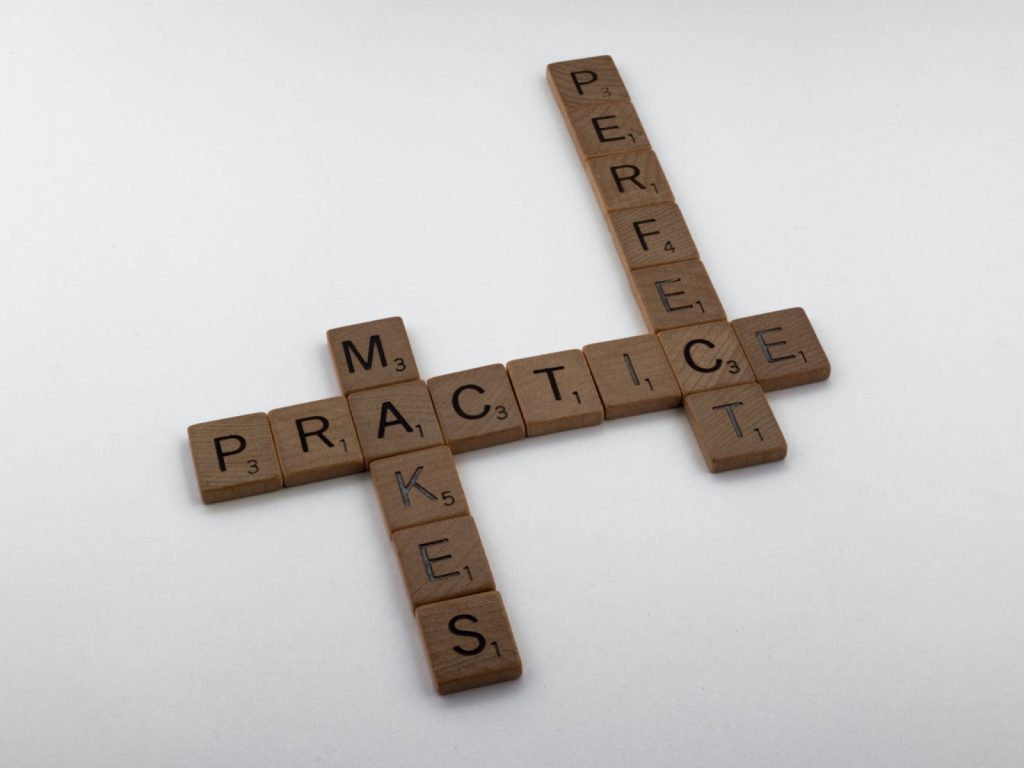If there’s one thing that students, teachers, and parents can agree on, it’s that math tends to remain one of the more complex and challenging subjects for students. Understanding complex concepts may not come easy for many students, often making them wonder how they can improve and overcome their fear of the subject and work on how to get better at math.
Math & ELA | PreK To Grade 5
Kids see fun.
You see real learning outcomes.
Watch your kids fall in love with math & reading through our scientifically designed curriculum.
Parents, try for free Teachers, use for free
As challenging as math may seem, a few effective strategies can help students improve their math skills. These strategies range from approaching their teacher for help after class, adopting effective studying strategies, and avoiding distractions, among others!
Related Reading: Easy Ways to Make Math Fun for Kids
How to Get Better at Math: 10 Simple Steps

As parents and teachers, navigating all the purported means and resources available online can be challenging. After all, identifying what might work for their children and students to help them excel in mathematics is key. But worry not! We’ve put together some of the best approaches and avenues to help with just that.
1. Approach Your Teacher for Help
As obvious as this may sound, asking your child to approach their teacher for help can do wonders. Figuring out how to get better at math is easier once a teacher is in the loop, as teachers are more than willing to provide one-on-one attention to students who may be struggling in their class. Sitting down with a teacher can help students get the extra attention they need to understand core concepts.
Students are usually reluctant to approach their teachers for help outside of class hours, but you’d be surprised to see how enthusiastic teachers are to lend a hand to students who need extra help. Teachers, most likely including your child, have dealt with and helped students struggling in math before and are well-equipped to deal with students who may need extra attention.
Recognizing the availability and willingness of a teacher to help is critical to kickstarting one-on-one sessions that can provide your child the extra attention they need to start excelling at math. So if your child is struggling in their math class, encourage them to approach their teacher, explain what they have difficulty understanding, and sit down with them.
2. Practice Makes Perfect

The effect a consistent practice routine can have on developing and strengthening numerical literacy cannot be overstated. Setting aside a little time to practice every day can lead to big leaps! Establishing a schedule is key to ensuring that students’ time for consistent practice is available daily.
Tackling math problems regularly can help students better grasp the abstract nature of mathematical concepts and demystify their complexities. A wealth of resources available on the internet can provide students access to math problems suited to their grades, which they can use to practice every day.
If finding problems to solve regularly remains challenging, ask your child to approach their teachers. They’d be happy to provide you with the required resources. If you’re wondering how to get better at math, all you have to do is practice.
Related Reading: Best Math Apps for Students
3. Focus on the Fundamentals
To figure out how to improve in math, start with the basics. It’s important to have a clear and solid grasp of the fundamentals before jumping to the next topic. Students must have a strong command over basic arithmetic functions to tackle problems suited to their grade level effectively.
If your child or student wants to master multiplication, they should have a solid conceptual grasp of addition and subtraction. If they’re going to master square numbers and roots, they ought to have a clear command over multiplication and division.
Ensuring focus on understanding the fundamentals can go a long way in helping students manage the subject’s complexities. On that note, ensure that your student or child does not skip topics they find overwhelming or challenging and jump to another one. This momentary escape can prove counterintuitive and restrict progress with other mathematical topics.
4. Don’t Skip Your Homework

If a classroom is where the learning happens, it is at home that students get a chance to test what they’ve learned. Making sure that a child consistently tackles the assigned homework is crucial to ensure that they can keep up with the learning in the classroom.
Homework is a vehicle that helps students test their grasp of fundamentals and, more importantly, helps them recognize gaps in their learning. Homework isn’t just about getting all the right answers but also about identifying where a student is struggling so that they can inform their teacher and get the extra attention or help they need to bridge crucial learning gaps.
Setting aside some time every day, preferably at the same time and place, to focus on and complete the assigned homework after classes can make focusing at home easier while ensuring that students give their homework the time and attention it deserves.
Related Reading: Ways to Make Homework Fun for Kids
5. Restricting Distractions
Whether your child is doing their homework or studying in a classroom, there are a million things that could distract them and limit their ability to focus on their studies. Limiting distractions can go a long way in ensuring their focus. When your child is home, it might help ensure that the TV is switched off and their cell phone is put away so they can give their homework undivided attention.
If your child is in the classroom and is sitting beside a friend who wants to discuss the latest episode of a TV show they’ve both been watching, it might be best to save that talk for their lunch break. Keep reminding your child to ward off distractions when they’re in class.
When your child studies, ensure they do their best to focus on just that— studying. It might even help to divide their study sessions into 20, 30, or 40 minutes, depending on how long they’re comfortable studying without feeling the need to take a break. Figuring out how to improve math can be tricky, but restricting distractions is half the work. There’s a reason why classes generally don’t go on for more than an hour.
Related Reading: Best Classroom Management Strategies for An Orderly Class
6. Deconstruct Complex Problems into Smaller Ones
Whether your child is in elementary, middle, or high school, it’s not difficult to imagine a moment where they might find themselves overwhelmed by a tricky problem that makes them wonder if you’re even sitting in the right classroom.
Complex math problems take different forms and shapes, depending on whether they deal with simple arithmetics at the elementary level, basic algebra in middle school, or advanced trigonometry in high school.

The key to solving a complex problem is to take a good look at the problem and ask yourself how you can break it down into smaller parts. If children are looking at a problem and need help understanding how to break it down into simpler and more manageable pieces, it might be because they need to brush up on their fundamentals.
It is important to pay close attention to teachers when they explain the steps involved in tackling any problem, complex or straightforward, to have a firm grasp of the approaches available to solve a problem.
Essentially, math is just about breaking down complex problems into simpler ones and then dealing with them individually until you arrive at an answer. Understanding how to be good at math is all about breaking down complex problems into smaller, more manageable chunks.
Related Reading: Best Math Games for Kids That Are Fun to Play
7. Make Notes and Go Over Them Regularly
In this day and age, with a wealth of resources available on the internet, it’s easy to contemplate the value of good old-fashioned notes and note-taking. Why should we bother making our own notes when we can find plenty of websites that provide great, concise notes for free? If you’ve ever wondered how to get better at math, there are a few strong reasons why you should consider making your notes.

For starters, making notes can help you improve your conceptual clarity of a subject matter by breaking down complex concepts and information into smaller, digestible chunks using your knowledge and understanding. The very process of writing something down on a piece of paper (or a tablet with a stylus) can be a great way to help with the retention of information.
Not only do you end up with a more profound, conceptual clarity of the subject matter you’re studying and ensure that you’re able to retain this subject matter, but you’ll also end up with notes that can help you when you have to revise everything that you’ve learned.
It might seem overwhelming to go through bulky textbooks with hundreds of pages, but if you have your notes, the provision of revision may become a breeze. An effective strategy on how to become better at math is consistent note-taking.
Related Reading: New Math Tips & Strategies to Improve Kids’ Problems-Solving Skills
8. Relate Real-life Situations to the Abstractions of Math
On the surface, it’s easy to dismiss a math problem as a jumble of complex symbols and random numbers. But there has to be more to them, right? Well, there is! Making connections between abstract math problems and the real world can go a long way in helping students understand the relevance of what they’re studying while also demystifying the complexity of the problem.
Whenever you’re in class and see your teacher writing down an equation on the board, or explaining the solution to a problem, pause for a moment and ask yourself how this equation or problem might apply to the real world. Could geometry have played a role in designing the desk you’re sitting on? Can arithmetic play a role in helping the phone in your pocket carry out essential functions?
Trying to understand something just by remembering it may not help you understand the value and relevance of what you’re studying. However, once you emphasize understanding the importance of what you’re studying, you might find the learning process more rewarding and fulfilling.
Related Reading: Best Math Websites to Take the Math Blues Away
9. Don’t Be Afraid to Ask Questions
Have you ever been in class and found yourself confused about something being taught, and instead of asking a question, you held back and let the class continue? Ask yourself why you chose not to ask questions, clarify your doubts, and help your learning.
Some students can feel hesitant to ask a question about something they think their peers have understood without asking any questions themselves. Others might feel like slowing down the class and drawing too much attention.
However, these are not the thoughts that students should entertain when they’re in a classroom because, as learners, they not only have every right to ask questions, but it is also something that teachers themselves encourage. Teachers love answering questions!
There is no such thing as a silly question. Questions are the vehicles that drive and ensure learning. The answer to a question that you ask may help not only you but also your peers. You’d be surprised to know that many of your peers may often have the same questions as you but are just as shy or afraid to speak up. Determining how to become a math expert can be tricky, but not if you’re always ready with a question.

The practice of asking questions is an important tool to ensure learning in classrooms and an important life skill that helps you nourish your spirit of inquiry and learning. If you’ve ever wondered how to improve math skills, asking questions in class is an easy way to start.
10. Find and Make a Study Partner
There might be days when you have a legitimate reason to be absent from school and, as a result, cannot attend classes. Having a study partner can ensure that you have someone taking strong and concise notes in your absence and sharing them with you to catch up on what you’ve missed. A study partner can help clarify doubts over texts, phone calls, or even in person.
Building positive relationships can not only help you in school and prepare you for the real world, as positive relationships can play a vital role in helping you excel socially and professionally. When you’re in middle and high school, dealing with more complex subject matters, it might help to form a study group with many of your friends.
A study group can be invaluable as it allows you to discuss everything you’ve learned in classes, clear your doubts, or get a head start on what you’ll learn next. It can help you get better at math and maybe even make a new friend at the same time.
Learning is both an individual and social process. Many students recognize their responsibilities as learners but forget to explore the social possibilities of aiding their learning. So find your study partner today!
Related Readings: Interesting Social-Emotional Learning Activities for Classroom
It’s Time to Get Better at Math

Whether your child cultivates a healthy habit of practicing math problems at home after classes or starts to take their homework just a little more seriously, these approaches can ultimately help them embrace math and improve their numerical literacy. So what are you waiting for? Sit down with your child and introduce them to the approaches that can help them become a math whiz in no time.
Related Reading: New Math Tips & Strategies to Improve Kids’ Problems-Solving Skills
Frequently Asked Questions (FAQs)
Which strategy would suit my child?
With so many approaches, it may not be easy to decide which ones your child would respond well to. However, depending on their sensibilities and preferences, you can help them zero in on approaches they might enjoy incorporating into their life.
If your child is reserved, they might want to meet their teacher after class to sit down one-on-one and clear their doubts. Alternatively, if your child is more outgoing, you can encourage them to find a study partner and ask questions to make the most of their classes.
Even though all these approaches are great, it would be best for your child to try out a couple to see which ones work for them.
Which strategy should my child start with?
When it comes to math, there is no substitute for practice. Whether a student is solving a problem in class, doing their homework at home, or studying with a study partner—in all situations, they’re ultimately practicing their math skills.
It may be helpful to stress the importance of practicing math problems so your child starts with an approach that eventually helps them practice math in a way that suits their learning style and sensibilities. As they get comfortable with one strategy, they can begin exploring others.
Is elementary too early to start incorporating these strategies?
Not at all! The sooner a child starts incorporating these strategies, the sooner they can take advantage of them. It’s never too early for a child to recognize the importance of practicing problems regularly and paying attention to their homework.
























